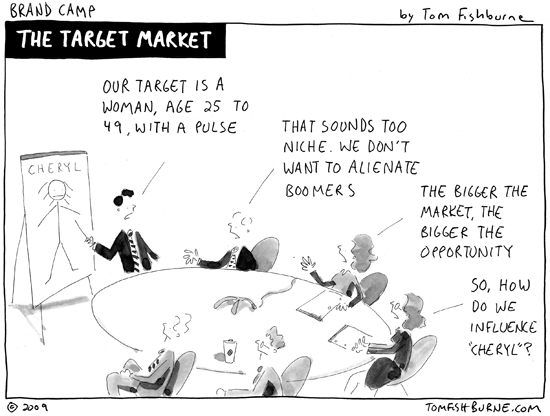
In this era of startups and ‘unicorns’, it’s all too easy to get caught up in the allure of the ‘big idea’. While such success stories are few and far between, there’s plenty of room for smart businesses and products to flourish in today’s tech economy without aiming for that lofty top 0.0001%.
Our CEO, Stoyan Ilchev, takes us through some key learnings for ambitious entrepreneurs to help take a more measured and practical approach to developing a product, app design and web development.

Big is not always better
If you’re waiting for the ‘big idea’, you’ll never do anything. This has been proven over and over again. Successful products are not the result of big ideas, but of small ideas which have been carefully taken care of, invested in, tested and consistently improved to become what they are today. Airbnb didn’t start with the idea of revolutionising the travel industry; they started by exploring a niche.

Research, research and research some more
There’s one thing you should always do when trying to create a successful business: good research. You should always try and validate your idea as early as possible — even if it’s just by talking to people about it and sounding them out. And be really, really open to failing - failing fast and inexpensively. That’s what we call having an MVP mindset. Don’t be afraid that someone might steal your idea. That doesn’t happen. An idea is just the beginning. The hard part is turning that idea into a viable business.

Refine your product
Usually ideas start simple — but the more we think about them, the more we tend to overcomplicate them. We stumble upon things we haven’t considered and use cases we haven’t thought of. People say they would love the app if it had that one extra feature. All of this is great and we should capture it — but then we should take a step back and rethink everything. Do we really need all of it?
We recently had a client who wanted to build an everything-and-the-kitchen-sink product, and by looking at the brief, we knew we had to politely disagree with them. They ended up with 20% of the original list of features, but with an app that was much easier to market and much more attractive to potential users. And this is what we call ‘Discovery’. It’s a process where we ask “why?” a lot. This stage of development is essential if you want to make a product as viable as it can be in its early stages.
Edge inwards
A good way to create a market for yourself is to explore the edges of an industry. This can give you a huge competitive advantage. You will have access to the first adopters who are often willing to pay a lot of money to play with technology or to use a product. You can also be the first one to explore ideas and see if you can grow them into a business.
Food delivery companies such as Just Eat and Uber Eats transformed the food delivery process a few years ago, and during the Covid-19 pandemic, the market more than doubled. But what opportunities lie on the edge of that industry? Food for all is a success story that found a niche among a common first-world problem related to food: managing food waste. Through the Food for All app, users can buy unsold meals from local restaurants, cafes, and delis with at least 50% discount. They help restaurants and grocery stores get rid of leftovers, and supply people in need with low-priced food. While Glovo has taken the ‘food delivery’ concept and pivoted to a model including making kitchens more accessible to food entrepreneurs via their CookRoom initiative.
Find your niche
Another way to explore niches is to really zoom in on a problem or target user base. Get really, really specific. Don’t design for millions of users; don’t even do it for thousands of users; do it for just a hundred. If you can appeal to them, they will pay a premium for your service.
It also helps if you zoom in on a very specific problem. Don’t be a generalist when designing products or businesses. Always have a clear vision who this is for and why they would use it.
If you need a way in, start by looking at things from your personal perspective. Often, you are your own ideal customer. Start thinking about your own problems or the problems of an industry you know really well, and you are more likely to find an untapped market: you can build out research from there to ensure there are others who share that pain point.

Source: Tom Fishburne
Target duopolies and oligopolies
One of the easiest ways to find a market for yourself is to attack an industry where there are well established leaders. People are different and not everyone wants the same thing, so it’s likely many of the customers in this market will be underserved. Furthermore, where big players exist the pie is big — so even if you’re small you can achieve huge success.
Just look at the iPhone when it launched. With established leaders like Nokia and BlackBerry dominating, it could barely get to 1% market share in the beginning — but even that 1% was huge money. Fast-forward a couple of years and it’s the most successful smartphone in the world.
Don’t pay attention to your rivals
When trying to create a niche product there’s one thing you should definitely remember: ignore your competitors (for the most part). Be informed about their strategic directions, but don’t sweat over every little thing they do. If you focus on satisfying your existing customers, you will do much better. Focus on creating new experiences and not playing catch-up with the other guys. Position yourself as an innovator.
Make your product indispensable
Always be careful with what you build. You have to create things in the world that people want to pay for because of the value it will add to their lives. Try to maximise that value. A good rule of thumb here is that people want to pay more for things they cannot live without, and it’s easier to create such products if you focus on a niche.
Explore different monetization strategies like subscriptions and patronage which will give you freedom to market to small groups. Platforms like Kickstarter and Patreon have revolutionised the ability of entrepreneurs and creators to launch and support a niche product or service.
Be brave
Don’t always focus on continuously improving what’s already there. Focus on the main principles and explore them to your benefit. Get to the bottom of what you’re trying to solve as a problem and go from there. Set attainable goals and ignore your inner perfectionist. What will make you stick is the courage to take the first step, and the determination to keep moving forward.
Wrapping up
Thinking about creating your own digital product is the start of an epic journey. If you’re ready to take the leap and you are looking for a trusted partner to bring your idea to life, you are in the right place. We’re an agency known for our hands-on approach and strategic, BS-free development processes. We’ll take time to understand you, asking the hard or boring questions to help you achieve success.
Get in touch with us and we can start working on your big idea today.

